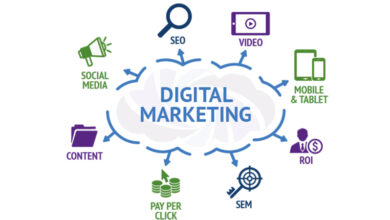
Types of useful LMS integrations to achieve the best learning outcomes
In today’s times, learning management systems or LMS is the ultimate way of facilitating training programs. Be it the need for virtual training, training employees that work remotely, or even making a library of learning material for the employees to access it themselves and learn on their own, an LMS can cover it all. However, choosing the ideal LMS that serves up to your specif needs can be tricky sometimes. The best way to choose an LMS is by comparing the integration option a particular LMS offers to others.
Integrations are very important when it comes to the working of an LMS. Integrations enhance the work process or the functionality of the system by allowing seamless data flow between the LMS and the integrated systems. Thus choosing an LMS like Adobe Connect that offers compatibility towards a lot of systems and thus is easily integrated can make things easier.
So, here are some of the most important integrations that you should consider for your LMS to get the best learning outcomes that will ultimately aid your business.
Table of Contents
Integration with Content Management System (CMS)
With the aid of technologies like the Content Management System or CMS, producing, managing, and organizing content has never been easier. This single tool can create engaging interactive courses and learning materials with sophisticated features and assist you in creating material that is original and enhanced. For moving and keeping existing material in a centralized area that can be accessed at any point in time, CMS is an excellent LMS integration.
Integration with Customer Relationship Management (CRM)
Customer Relationship Management is a no-brainer when it comes to LMS integration if you want to track down your users’ experiences and the user interaction with your product/service. It is a deadly tool for organizing dispersed user data and performing business analysis to help you make better decisions.
CRMs, like CMSs, are a very popular tool broadly in the educational and business sectors. When used well, CRMs can integrate customers, employees, and partners while analyzing the user experiences and quantifying them into data to help with lead generation and decision making.
Integration with Web Conferencing tools
Web conferencing is not a new concept or feature as such, but recently during the worldwide pandemic, they became much more essential. They link millions of individuals every day and allow companies to continue operating despite COVIDs-19’s unique conditions. By integrating web conferencing tools with LMS, hosting live events, online meetings, and much more may be done easily.
Integration with eCommerce platforms
There are several sorts of LMS connections, each with its purpose. E-Commerce integrations, on the other hand, are useful for e-commerce platforms since they provide unique capabilities. With the growth of e-commerce integrations, selling online got easier thanks to digital transformation and internet access. eCommerce integration can help you manage online sales and payment processes as well as analyze the insights of your website; ultimately streamlining your business and enhancing the shopping experience for your customers.
Integration with Social media platforms
In today’s world, everything that isn’t connected to social media appears to be lacking. With this in mind, it’s safe to assume that social media integrations are critical for your company’s success. Businesses, for example, collect consumer feedback through online forums, live streams and chats, comment threads, surveys, and other user-generated material.
Conclusion:
It might be difficult to select the best LMS for your purposes. You may, however, use the list above to determine which integrations are essential for you and then select software that has them to achieve your company goals.








